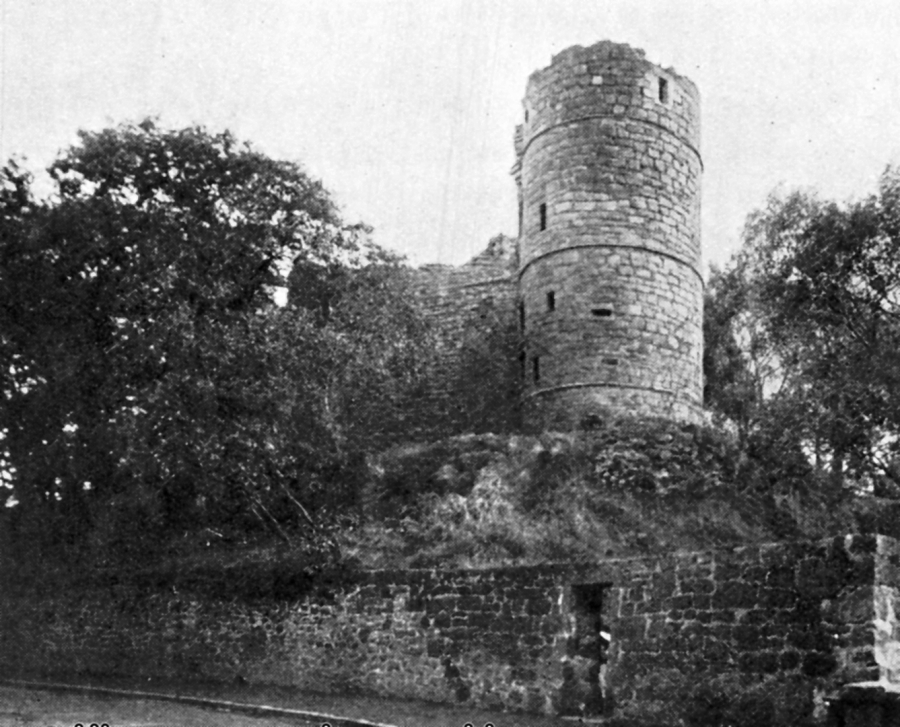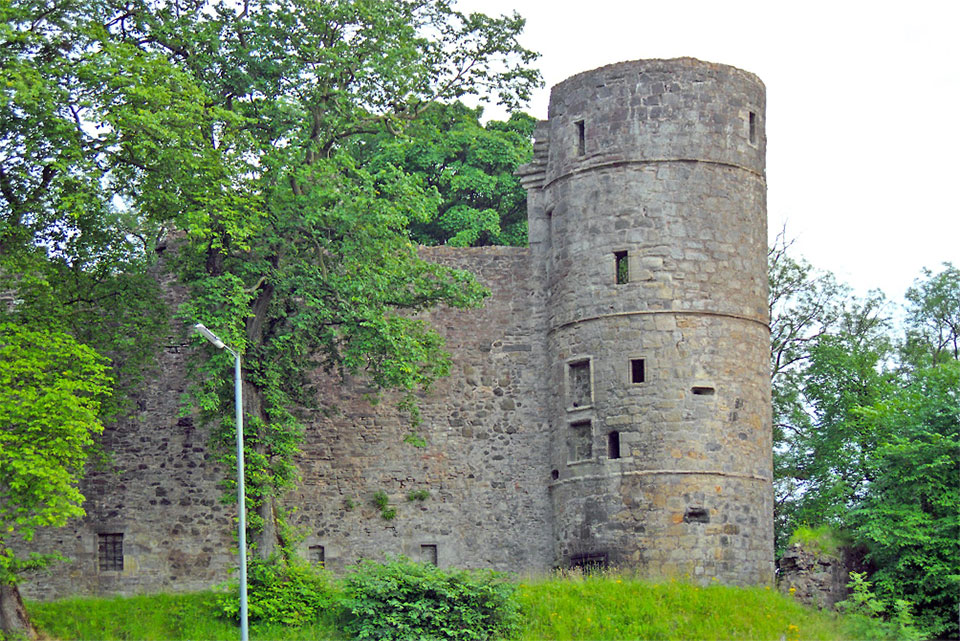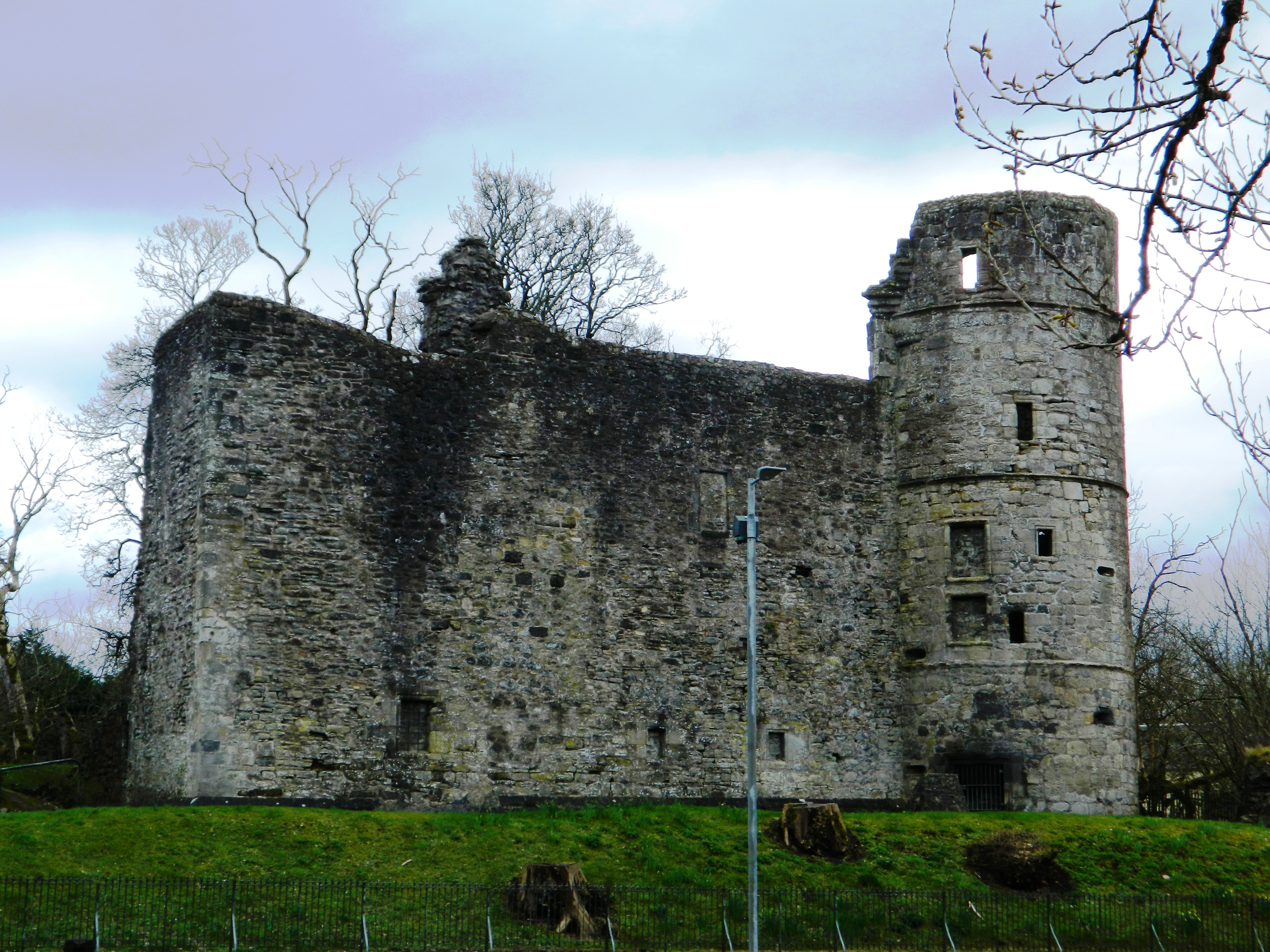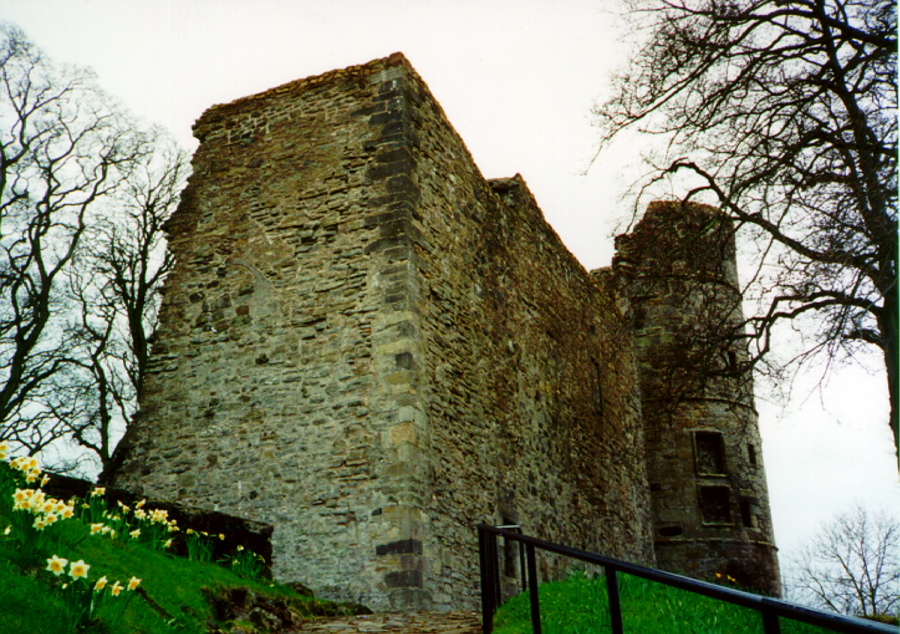Strathaven Castle, a 14th-century fortress located in the town of Strathaven in South Lanarkshire, Scotland, stands as a silent witness to centuries of history. Now a haunting ruin, its weathered stone walls have borne witness to the tales and tragedies of medieval Scotland, from its foundation by the Bairds to its eventual transfer to the Hamilton family. Although it remains closed to public entry, Strathaven Castle’s presence continues to captivate the imagination, embodying the spirit of Scotland’s storied past.
The Origins and Architectural Significance of Strathaven Castle
Built in the 14th century, Strathaven Castle originally served as a fortified residence for Scottish nobility. Strategically positioned to overlook the surrounding landscape, including the nearby River Avon, the castle’s elevated location provided both security and surveillance over the land. Its design reflects typical medieval defensive architecture, with thick walls, narrow windows, and limited points of entry to guard against invaders.

Throughout its history, the castle changed hands, passing from the Bairds to the Hamilton family, who expanded and maintained it for generations. By the 18th century, however, the castle had fallen into disuse and was gradually abandoned. Over time, it deteriorated, leaving behind the crumbling ruins that stand today. Despite its dilapidated state, Strathaven Castle’s enduring structure serves as a powerful reminder of the resilience of Scottish heritage.
A Haunting Legend: The Tale of the Walled-Up Lady
One of the most chilling and enduring legends associated with Strathaven Castle concerns a former lord’s wife who met a tragic fate within its walls. According to local folklore, this noblewoman incurred her husband’s wrath to such a degree that he ordered her to be sealed alive within a specially constructed alcove in the castle wall. The exact nature of her offense remains unknown, but the story recounts that she was given a final blessing by a priest, offered a meager supply of food and water, and then walled up forever.

This tale might have faded into obscurity were it not for a gruesome discovery in the mid-19th century. During a partial collapse of the castle walls, human bones were reportedly found within the rubble, lending a disturbing sense of reality to the legend. Whether or not these remains belonged to the unfortunate noblewoman remains a mystery, but the finding has only strengthened local belief in this haunting tale.
Strategic Location and Historical Role
In its prime, Strathaven Castle’s location would have been of immense strategic value. Overlooking the town and nearby River Avon, it provided a vantage point that was crucial for both defense and control of the surrounding lands. Its high position enabled occupants to monitor approaching visitors or threats and demonstrated the power and influence of its noble residents over the local area.

The castle’s ownership changed hands multiple times, with each family adding to its history and structure. By the 18th century, however, the need for heavily fortified structures had waned, and the castle was gradually abandoned, leaving it vulnerable to the effects of time and weather. What remains today is a shadow of its former glory, yet the castle’s ruins continue to evoke the power and influence it once represented.
Strathaven Castle Today: A Monument to Scotland’s Past
Although Strathaven Castle is no longer open to the public, its enduring structure and surrounding legends make it a compelling monument. Captured recently in a photograph on November 7, 2024, the castle’s current state is a striking contrast to the ancient images and stories that speak of its former splendor. This modern snapshot juxtaposes past and present, illustrating the persistence of Scotland’s historical monuments even as they endure the ravages of time.

Strathaven Castle stands not only as a relic of medieval Scotland but as a poignant reminder of the legends and stories that infuse history with life. Its ruins invite contemplation, offering a glimpse into a bygone era where power, loyalty, and fate intertwined within its stone walls. While much of its past remains shrouded in mystery, the castle’s presence continues to inspire awe and reverence, preserving the echoes of Scotland’s grim yet fascinating heritage.

